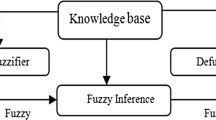Abstract
Cloud computing is an emerging high performance computing paradigm for managing and delivering services using a large collection of heterogeneous autonomous systems with flexible computational architecture. Task scheduling is one of the most challenging aspects to improve the overall performance of the cloud computing such as response time, cost, makespan, throughput etc. Task scheduling is also essential to reduce power consumption, processing time and improve the profit of service providers by decreasing operating costs and improving the system reliability. This paper focuses on Task Scheduling using a novel architecture with Dynamic Queues based on hybrid algorithm using Fuzzy Logic and Particle Swarm Optimization algorithm (TSDQ-FLPSO) to optimize makespan and waiting time. The experimental result based on an open source simulator (CloudSim) show that the proposed TSDQ-FLPSO provides an optimal balance results, minimizing the waiting time, reducing the makespan and improving the resource utilization compared to existing scheduling algorithms.
Similar content being viewed by others
References
Mell, P., Grance, T.: The NIST Definition of Cloud Computing. National Institute of Standards and Technology, the NIST Special Publication 800-145. ACM (2011)
Armbrust, M., Fox, A., Griffith, R., Joseph, A.D., Katz, R., Konwinski, A., Lee, G., Patterson, D., Rabkin, A., Stoica, I., Zaharia, M.: A view of cloud computing. Commun. ACM 53(4), 50–58 (2010). ACM
Ma, J., Li, W., Fu, T., Yan, L., Hu, G.: A novel dynamic task scheduling algorithm based on improved genetic algorithm in cloud computing. In: Wireless Communications, Networking and Applications, pp. 829–835. Springer (2015)
Wu, X., Deng, M., Zhang, R., Zeng, B., Zhou, S.: A task scheduling algorithm based on QoS-driven in cloud computing. In: Procedia Computer Science, vol. 17, pp. 1162–1169. Elsevier (2013)
Beegom, A., Rajasree, M.: A particle swarm optimization based pareto optimal task scheduling in cloud computing. Lecture Notes in Computer Science, pp. 79–86. Springer (2014)
Dai, Y., Lou, Y., Lu, X.: A task scheduling algorithm based on genetic algorithm and ant colony optimization algorithm with multi-QoS constraints in cloud computing. In: 7th International Conference on Intelligent Human-Machine Systems and Cybernetics, pp. 428–431. IEEE (2015)
Himani, Sidhu, H.: Cost-deadline based task scheduling in cloud computing. In: Second International Conference on Advances in Computing and Communication Engineering, pp. 273–279. IEEE (2015)
Jena, R.: Multi objective task scheduling in cloud environment using nested PSO framework. In: Procedia Computer Science, vol. 57, pp. 1219–1227. Elsevier (2015)
Zulkar Nine, M., Azad, M., Abdullah, S., Rahman, R.: Fuzzy logic based dynamic load balancing in virtualized data centers. In: International Conference on Fuzzy Systems (FUZZ-IEEE), pp. 1–7. IEEE (2013)
Kennedy, J., Eberhart, R.: Particle swarm optimization. In: International Conference on Neural Networks, vol. 4, pp. 1942–1948. IEEE (1995)
Clerc, M., Kennedy, J.: The particle swarm—explosion, stability, and convergence in a multidimensional complex space. IEEE Trans. Evol. Comput. 6(1), 58–73 (2002). IEEE
Feng, Y., Teng, G., Wang, A., Yao, Y.: Chaotic inertia weight in particle swarm optimization. In: Second International Conference on Innovative Computing, Information and Control (ICICIC 2007), p. 475. IEEE (2007)
Xin, J., Chen, G., Hai, Y.: A particle swarm optimizer with multi-stage linearly-decreasing inertia weight. In: International Joint Conference on Computational Sciences and Optimization, pp. 505–508. IEEE (2009)
Yue-lin, G., Yu-hong, D.: A new particle swarm optimization algorithm with random inertia weight and evolution strategy. In: International Conference on Computational Intelligence and Security (CISW 2007), pp. 199–203. IEEE (2007)
Kumar, S., Chaturvedi, D.: Tuning of particle swarm optimization parameter using fuzzy logic. In: International Conference on Communication Systems and Network Technologies, pp. 174–179. IEEE (2011)
Kennedy, J., Eberhart, R.: A discrete binary version of the particle swarm algorithm. In: International Conference on Systems, Man, and Cybernetics. Computational Cybernetics and Simulation, pp. 4104–4108. IEEE (1997)
Mamdani, E.: Application of fuzzy algorithms for control of simple dynamic plant. Proc. Inst. Electr. Eng. UK 121(12), 1585 (1974). IEEE
Cingolani, P., Alcala-Fdez, J.: jFuzzyLogic: a java library to design fuzzy logic controllers according to the standard for fuzzy control programming. In: International Journal of Computational Intelligence Systems, pp. 61–75. IEEE (2013)
Cingolani, P., Alcala-Fdez, J.: jFuzzyLogic: a robust and flexible Fuzzy-Logic inference system language implementation. In: International Conference on Fuzzy Systems (FUZZIEEE), pp. 1–8. IEEE (2012)
Calheiros, R., Ranjan, R., Beloglazov, A., De Rose, C., Buyya, R.: CloudSim: a toolkit for modeling and simulation of cloud computing environments and evaluation of resource provisioning algorithms. J. Softw. Pract. Experience 41(1), 23–50 (2011). ACM
Parallel Workloads Archive: NASA Ames iPSC/860. http://www.cs.huji.ac.il/labs/parallel/workload/l_nasa_ipsc/
Kalra, M., Singh, S.: A review of metaheuristic scheduling techniques in cloud computing. Egypt. Inf. J. 16(3), 275–295 (2015). Elsevier
Author information
Authors and Affiliations
Corresponding author
Editor information
Editors and Affiliations
Rights and permissions
Copyright information
© 2017 Springer Science+Business Media Singapore
About this paper
Cite this paper
Ben Alla, H., Ben Alla, S., Ezzati, A., Mouhsen, A. (2017). A Novel Architecture with Dynamic Queues Based on Fuzzy Logic and Particle Swarm Optimization Algorithm for Task Scheduling in Cloud Computing. In: El-Azouzi, R., Menasche, D.S., Sabir, E., De Pellegrini, F., Benjillali, M. (eds) Advances in Ubiquitous Networking 2. UNet 2016. Lecture Notes in Electrical Engineering, vol 397. Springer, Singapore. https://doi.org/10.1007/978-981-10-1627-1_16
Download citation
DOI: https://doi.org/10.1007/978-981-10-1627-1_16
Published:
Publisher Name: Springer, Singapore
Print ISBN: 978-981-10-1626-4
Online ISBN: 978-981-10-1627-1
eBook Packages: EngineeringEngineering (R0)




